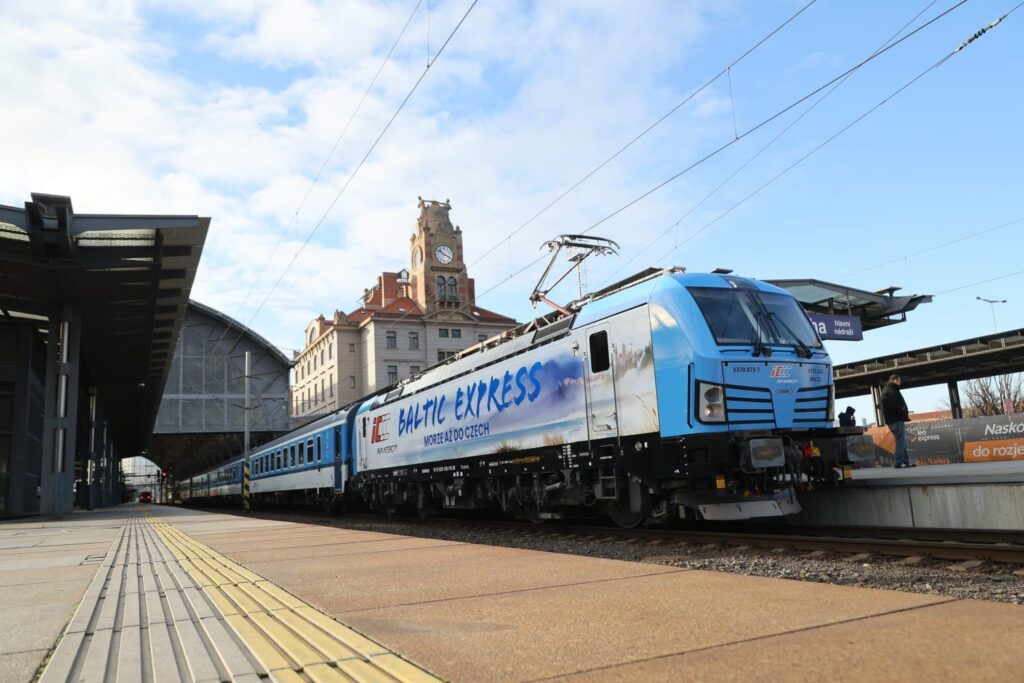
Czech Railways introduces Baltic Express
Czech Railways (České dráhy, ČD) has announced the launch of its highly anticipated Baltic Express, a direct train service connecting Prague to the Polish port city of Gdynia on the Baltic Sea. This new service represents a significant step in enhancing cross-border rail connectivity in Central Europe, catering to both leisure travelers and those with business interests in the region.
The Baltic Express will cover approximately 750 kilometers, running from Prague’s main station (Praha hlavní nádraží) through key cities such as Pardubice and Ostrava, before crossing into Poland and making stops in Katowice, Warsaw, and finally Gdynia. Travelers will benefit from a scenic journey through the heart of Central Europe, passing picturesque landscapes, historic towns, and vibrant metropolitan hubs.
Gdynia’s strategic location on the Baltic coast makes it an attractive destination, not just for tourism but also for its role as a significant transport and logistics hub. The Baltic Express is poised to attract passengers seeking to explore Poland’s northern regions and the broader Baltic Sea area.
The service will initially operate daily, with departures from Prague scheduled for the early morning hours and arrivals in Gdynia by evening. Similarly, the return trip will depart Gdynia in the morning, ensuring travelers can make the most of their day at either end of the route. While the precise travel time is yet to be finalized, ČD aims to maintain a competitive duration, positioning the Baltic Express as a viable alternative to air travel.
Czech Railways has emphasized passenger comfort and environmental sustainability in the Baltic Express’ design. The service will utilize modern, high-capacity trains equipped with state-of-the-art amenities. Passengers can look forward to spacious seating, onboard Wi-Fi, and catering services, ensuring a pleasant travel experience.
The trains will be powered by advanced locomotives, including Polish-made engines renowned for their efficiency and reliability. This collaboration underscores the growing partnership between Czech and Polish rail sectors. Furthermore, the Baltic Express aligns with broader EU goals of promoting rail as a sustainable mode of transport, reducing reliance on carbon-intensive alternatives like air travel and road transport.
Despite its promising features, the Baltic Express has faced some initial hurdles. According to reports, the launch schedule experienced delays due to technical and logistical challenges, including coordination with Polish rail operators. However, ČD has worked diligently to address these issues, ensuring the service meets high operational standards.
Another challenge has been optimizing the route to balance speed and accessibility. While travelers value shorter journey times, ensuring adequate stops to serve regional passengers remains a priority. The Baltic Express’ planners have sought to strike a balance, creating a route that caters to both long-distance travelers and those commuting between intermediate destinations.
The introduction of the Baltic Express is expected to have far-reaching economic and social benefits. By linking two major economic regions—the Czech Republic and northern Poland—the service facilitates business travel and strengthens economic ties. Additionally, it enhances accessibility for tourists, potentially boosting the local economies along the route.
For the Czech Republic, the Baltic Express reinforces Prague’s status as a central European transport hub. For Poland, it provides an efficient rail link to its northern regions, supporting Gdynia’s role as a gateway to the Baltic and beyond.
Future Prospects
Looking ahead, Czech Railways has ambitious plans to expand and refine the Baltic Express service. Potential upgrades include more frequent connections, faster travel times, and additional stops to serve a broader passenger base. Furthermore, ČD is exploring the possibility of integrating the Baltic Express with other international rail services, creating a seamless network that connects Central Europe with the wider continent.
The Baltic Express also serves as a model for future cross-border rail initiatives. Its development showcases the potential for collaboration between national rail operators to create efficient, passenger-friendly services that transcend borders.
Conclusion
The Baltic Express marks a milestone in Central European rail travel, offering a modern, sustainable, and convenient link between Prague and the Baltic Sea. While challenges remain, Czech Railways’ commitment to delivering a high-quality service is evident. As the Baltic Express begins its journey, it promises to reshape regional connectivity, bringing economic, social, and environmental benefits to the communities it serves. This initiative is not only a triumph for Czech Railways but also a testament to the growing importance of rail in fostering European integration and mobility.
Fonti: https://www.expats.cz/czech-news/article/czech-railways-launches-express-train-from-prague-to-the-baltic-sea; https://www.ceskedrahy.cz/Baltic-express?language=cs; https://www.idnes.cz/ekonomika/doprava/baltic-express-praha-gdyne-ceske-dragy-zpozdeni.A241215_113230_ekonomika_bro ; https://www.zeleznicni-magazin.cz/aktuality/polska-lokomotiva-pro-baltic-express ; https://www.ceskedrahy.cz/en/press-center/press-releases/baltic-express-will-start-running-already-four-months-new-2025.




